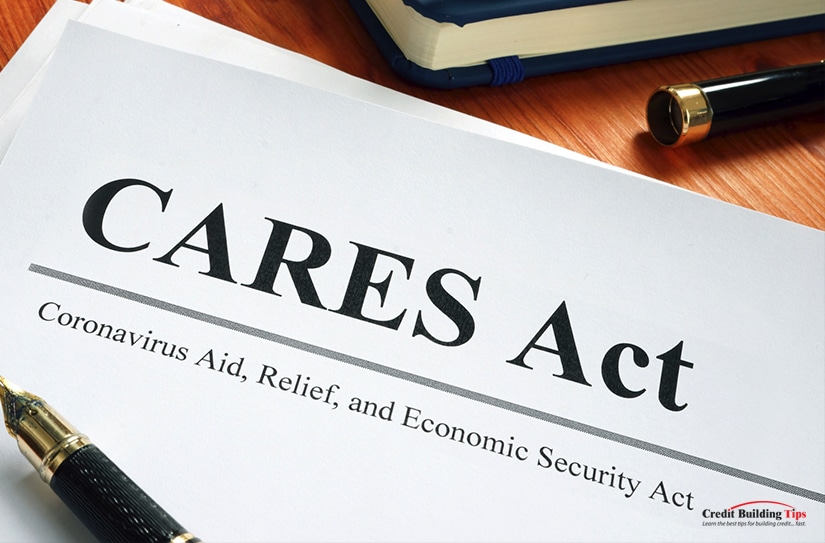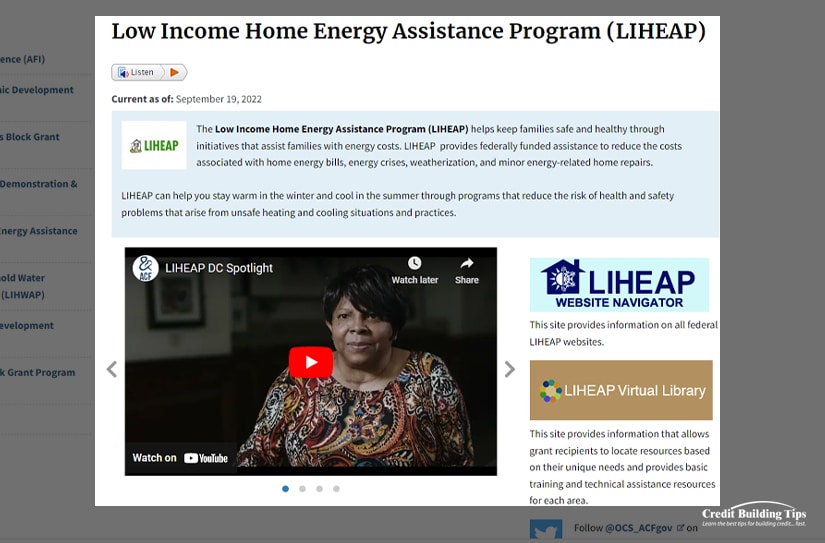It's easy enough to make a payment late during the best of times, but with the effects of COVID-19 still lingering, many people still struggle to pay all their bills on time.
The recent shock to the world economy disrupted supply chains which caused major delays in shipping. Labor shortages and rising demand only made things worse for many Americans, and inflation remained near a 40-year-high as of last month.
Two-and-a-half years into the pandemic, 75% of Americans have non-mortgage debt, and many of them report that they are struggling hard to pay them down. Last year Americans thought they would be able to pay their COVID-related debt off within a year, but now only 22% do.
"Seventy percent of Americans have lived paycheck to paycheck at some point during the pandemic, and nearly half (48%) are living paycheck to paycheck right now."
Forbes posted an article reporting that:
"75% of Americans have missed credit card payments due to COVID-19."
Obviously, some of these missed payments could be due to forgetfulness, but a "whopping 43% of respondents missed or paid late due to needing that money for essentials, while another 27% couldn't pay due to unexpected expenses."
Households who qualified as middle-income put their expenses on their credit cards, hoping to pay the debt off in the future. They also used bank loans and lines of credit and, in some cases, took on payday loans.
Experian reports,
"There's a good chance your lenders are prepared to work with you to provide payment relief without causing late payments to appear on your credit reports."
With the best will in the world, it hasn't been possible for everyone to pay bills on time and avoid late payment fees. We've researched ways for you to deal with and remove the late payments you may have incurred since 2020.
 Thankfully, if you have late payments that resulted during COVID-19, there are ways to remove them from your credit report.
Thankfully, if you have late payments that resulted during COVID-19, there are ways to remove them from your credit report.The CARES Act is the Coronavirus Aid, Relief, and Economic Security Act that came into effect on March 27, 2020, and was created to help Americans impacted by COVID-19.
 One of the biggest ways this act protects you is that creditors must make accommodations for people who are having trouble making their payments on time. You'll still have to make your payments, but if you contact your creditor or lender, they must offer you an alternative payment arrangement.
One of the biggest ways this act protects you is that creditors must make accommodations for people who are having trouble making their payments on time. You'll still have to make your payments, but if you contact your creditor or lender, they must offer you an alternative payment arrangement.
There are four main types of agreements creditors and lenders are currently making:
Once you have contacted your creditor and made arrangements with them, they cannot report your payments as "past due" as long as your account was in good standing prior to the pandemic.
The timeline applies to agreements that were made between January 31, 2020, and 120 days after the COVID-19 national emergency ends.
Before you start negotiating with your creditor in order to get a late payment removed, you'll want to understand why you were reported late and identify the circumstances that caused the late payment.
Check if the payment was missed or if it bounced. A payment may be marked late because you didn't make a big enough payment to cover the minimum amount due.
It's always worth checking to see if the creditor made a mistake, not you.
 If you do find they made a mistake, call them as soon as possible.
If you do find they made a mistake, call them as soon as possible.Ten of these common mistakes were listed by Ali Zane on his iMax Credit site, and we've included them as he listed them:
If you find your late payment is due to one of these reasons, he recommends you ask the creditors to remove the "late payment" designation as a courtesy. It's also wise to ask them for a letter stating their willingness to remove the "incorrect late payment from the credit report."

Some banks and credit card companies may positively respond to requests made by phone, while others would need a lot of convincing, and some would take hard work to get them to change their position.
Some extenuating circumstances may work in your favor if they apply to your situation. We haven't found a better list of these types of circumstances than those listed by Ali Zane in the same article, so we'll give them to you in their entirety:
You won't be able to communicate these extenuating circumstances via a phone call. You'll need to fax the information to the appropriate credit bureau and ask them to review it, which usually happens within two to four weeks.
If you can now make your payments, were able to pay your bills on time, and only fell behind when the pandemic started, there are ways to remove the late payments from your account.
Many creditors can understand and sympathize with people struggling to keep up with paying their bills during this time. Calling your lender directly may give you a more human experience than you anticipated.
First, let them know that you have made or are making the past due payment immediately. They'll want to know your circumstances since the pandemic began so they can fully understand your situation. They might also ask you to scan and email them (or fax) supporting documents that show you lost your job or were ill due to COVID-19.

You can request three things while on the phone with the representative:
Most creditors have higher-level customer resolution departments. If your initial phone call doesn't get you the results you need, ask to speak to a manager or someone in a more senior position.
Alternatively, you can Google the company's website to find their phone number, address, or department's email address. Send a letter to the CEO and include all your contact information so they can reply to your request.

Make sure to include as much information as possible as to the circumstances that caused your payments to be late, and include any documents that will support your claim. A respectful and honest letter can go a long way to getting your late payments removed.
If you do any amount of research or try to accomplish this on your own, you'll see that it's a lot of work. That's why it's sometimes best to hire a credit repair company to help you.

Don't assume all credit repair companies are created equal. Make sure to check reviews to see what other people have to say about their experience with the company. Check to see if it complies with your state's licensing and registration requirements.
Finally, read the fine print about when they will charge you for their services. You don't want to pay them anything until they successfully repair your credit. Nor do you want to pay them a monthly fee or any extra hidden fees.
Although the circumstances of COVID-19 don't meet the criteria of "ordinary" circumstances that will qualify you for forbearance, many lenders are approving forbearance for those who are financially struggling due to the pandemic.

According to Experian:
"…any of your accounts placed in forbearance under the CARES Act will be "paused" in the payment status they are at when forbearance begins. If the account is current and in good standing, it will stay that way even if payments are reduced or suspended during forbearance. If an account is, say, 30 days past due when forbearance starts, it will remain at that status (and not rack up further delinquency) during the forbearance period."
They've also compiled an exhaustive list of financial and non-financial institutions' websites to help you find more relief measures.
The U.S. is also invested in helping you get through this season and back on track financially. They've instituted a wide range of government programs to help with everything from phone bills to medical bills to prescription drug costs.

These programs include:
SNAP — also known as food stamps — just got a boost to $36 a month for the average recipient. Check their eligibility requirements to determine whether you or someone you know who's in need qualifies.
Once the pandemic is behind us and we've had a chance to catch up, we'll all be in a better position to take charge of our financial life again.
The most important reason to prioritize making payments on time is that this alone is the best thing you can do to improve your credit score. Your payment history makes up 35% of your score. Pay on time, every time, and you'll be on your way to a great credit score.

Paying your bills on time will also save you money as you won't be charged late fees. Some companies set your "payment due" on a timer and will start to charge late fees the second the clock ticks over.
You'll benefit from lower interest rates as well as getting access to better products. Landlords consider your credit score as part of your application, and a higher credit score can give you the edge over other applicants.
One last shout-out to iMax Credit. Their team of expert credit repair specialists can help you with every credit situation you may face. The last list we'll share with you from them rates an extensive list of creditors based on how easy or difficult it is to get them to remove late payments:
The creditors we consider to be easy to work with include:
The creditors that may take a little more effort to work with include:
The creditors that are considered difficult to work with include:
Some good news is that the Federal Reserve Bank (and many experts) don't think this inflation is long-term. They believe that once the supply chain issues are worked out, "in a lot of cases…prices will actually drop."
We can only hope they're right. In the meantime, if you're looking for ways to improve your credit scores as fast as possible, I'm here to help!